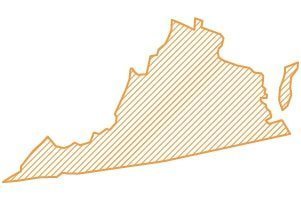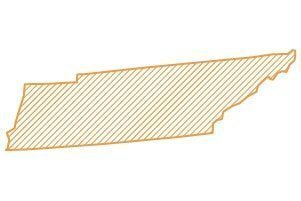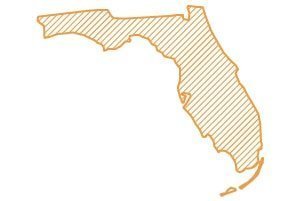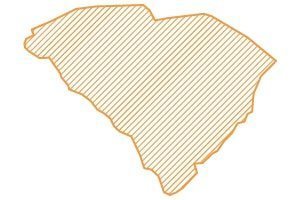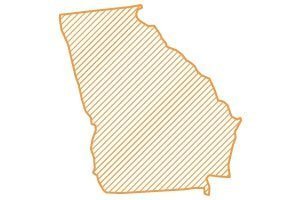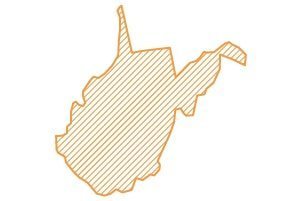North Carolina provides its residents with four ALA-accredited library science programs, trailing only New York as the state with the most MLIS programs. Led by its flagship university, the University of North Carolina at Chapel Hill, the library and information science education offered by the state is robust and highly ranked. Furthermore, it is an excellent state for librarian careers because they have large public library systems throughout the state and numerous academic and school libraries.
North Carolina has four Master of Library and Information Science (M.L.I.S.) programs accredited by the American Library Association (ALA) and another library science master’s program for school librarianship licensure that is accredited by the American Association of School Librarians (AASL). Keep reading to learn more about these programs and see if they are the right fit for you.
Library Science Programs Currently Accepting North Carolina Applicants
ALA Accredited Masters in Library Science and MLIS Programs in North Carolina (The Best Programs)
In North Carolina, and in many other states, you need a master’s degree in library and information science from an ALA-accredited program to become a professional librarian. Additionally, these programs will prepare you for other careers in information creation, management, and organization.
Master of Science in Library Science at the University of North Carolina at Chapel Hill
This program is ranked #1 by QS World Rankings, #1 in Health Librarianship by U.S. News, #1 in Digital Librarianship by U.S. News, and #3 in Services for Youth by U.S. News. And it lives up to those standards. The program is ALA-Accredited and offers specialization in archives and records management, school librarianship, youth services librarianship in public libraries, database administration, reference services, data curation, cataloging, digital archives, and special collection development. Additionally, all students will gain knowledge and experience through conducting their own research and through internships and community service.
- ALA-accredited
- 48-credit hours
- In-person program
- No GRE required
How to apply
Most applicants that are accepted have at least a 3.5 GPA on a 4.0 scale, but the college also looks at related coursework completed, work experience, and research done. Apply online and pay the application fee. Additionally, submit unofficial transcripts from all colleges attended, a resume, a statement of purpose, and three letters of recommendation.
Master of Library and Information Science at the University of North Carolina-Greensboro
This program prepares students for positions in librarianship within academic libraries, public libraries, and special libraries, and positions as information specialists among other organizations and businesses. They also offer a licensed master’s degree in school librarianship that the U.S. News & World Report highly ranks, as well as an instructional technology licensure.
- ALA-accredited
- Online
- 36-credit hours
- No GRE required
- Offers school library licensure
- Offers instructional technology licensure
How to apply
To qualify for the MLIS program, you will need a bachelor’s degree from an accredited college or university. Then you can apply online and pay the application fee. You will also need to send your transcripts, three letters of recommendation, a personal statement, and an updated resume. You can send these documents by emailing them to gradinquiry@uncg.edu or by mailing them to The Graduate School, UNC Greensboro, P.O. Box 26170, Greensboro, NC 27402-6170.
Master of Library Science at North Carolina Central University
This is a primarily black university with an award-winning MS program in library science. It was ranked “Most Affordable Library Science Degree Online” by College Choice, and it was “Best Online Colleges” for Master’s in Library Science by SR Education Group. Additionally, they offer seven different tracks to choose from, including law librarianship, academic librarianship, archives, digital librarian, public librarian, school library media, and special librarian.
- ALA-Accredited
- Online program
- Seven-course track choices
- 36-credit hours
- No GRE required
How to apply
To qualify, you need at least a 2.75 GPA on a 4.0 grading scale from an accredited college or university and a completed bachelor’s degree. The apply online and pay the application fee. You will also need to submit transcripts, two letters of recommendation, a statement of purpose, and an updated resume.
Master of Library Science at East Carolina University
East Carolina University has a favorable reputation with employers, especially regarding library science and school librarianship. 94% of surveyed employers said they would hire a graduate from East Carolina’s master’s program in library science. This could be due to the program’s existence since 1939 and its commitment to staying current with emerging technologies.
- Online program
- ALA-accredited
- Three concentrations
- No GRE required
How to apply
To qualify, you must have at least a 2.70 GPA on a 4.0 scale and hold a bachelor’s degree from an accredited university or college. Then apply online and pay the application fee. Additionally, send in transcripts, an admissions essay, a resume, and three letters of recommendation.
Bachelor Programs in Information Science in North Carolina
A bachelor’s degree in information science, or other related studies, prepares students for furthering their education by obtaining their MLIS, or for a lower level of librarian work and other information-specialized fields. Information specialists are growing in necessity because of the vast amount of available information. Information specialists learn how to find and organize information for easier use and access.
Bachelor of Information Systems and Supply Chain Management at the University of North Carolina-Greensboro
This program is AACSB accredited and 100% online. The degree prepares students to know about data management, project management, logistics, and business computing. These skills are broad enough for a multitude of business and management jobs as well as information specialist jobs. It is also an excellent undergraduate degree for those wanting to further their education by earning a master’s degree in library and information science to work in the library field.
How to apply
To qualify, you must have at least a 2.0 GPA and a high school diploma. Then, you can apply online, pay the application fee, and submit official transcripts, ACT/SAT scores and transferable credits at a C or higher.
Ph.D. in Library Science Programs in North Carolina
A Ph.D. in Library and Information Science will prepare you for any type of research. It will teach you how to find information, how to organize information, and how to communicate with others about research and help the community interact with information and information technology. It will also provide the skills for teaching others about library and information science.
Doctor of Philosophy and Information Science at the University of North Carolina at Chaple Hill
This program teaches leadership, scholarship, and teaching skills through multiple forms of education. Research and other projects are collaborative with other students and faculty. One major focus of the program is for students to learn to identify problems in society and their relationship with information. Students also learn how to communicate their findings and research.
How to apply
To qualify you must have a background in information science, information organization, information technology, communication, and other related areas of study. You must also have some experience with various research methods, and either a master’s degree in library and information science or the equivalent of study. Then, apply online to the graduate program and submit transcripts, a resume, a statement of purpose, and three letters of recommendation.
How to Become a Librarian in North Carolina
To become a librarian in North Carolina in an academic setting, or in a public library setting, you must have an MLIS degree from an ALA-accredited program. However, if you want to be a school librarian, you will need to either receive licensure during your MLIS program or complete a program specific to school librarianship.
What else can you do with a Library Science Degree in North Carolina?
Here is a list of some recent jobs MLIS graduates received in North Carolina and the names of the employers:
Analytics Developer at Hearfulhub
Web Application Developer at Wildfire
Design Assistant/Asset Management at Glen Raven
There are also many archives and museums for archivists in North Carolina, including the state archives in Raleigh, The Outer Banks History Center in Manteo, and The Western Regional Archives in Ashville.
North Carolina Library Science Career and Salary Opportunities
North Carolina offers some of the highest employment in the U.S. for librarians. There are many opportunities in Charlotte, Raleigh, Boone, Greensboro, Greenville, Durham, and Chapel Hill.
Cumberland County Public Library System is also a large system that serves the Fayetteville and Fort Bragg area.
According to the U.S. Bureau of Labor Statistics, the average salary for librarians in North Carolina is $56,900, and in Raleigh and Durham, librarians tend to make $64,000 annually.
Additional Links
For more information about library and information science, and for online resources for library professionals visit https://www.ala.org/
For more information on libraries in North Carolina and for more career listings, visit https://nclaonline.wildapricot.org/jobs-list

